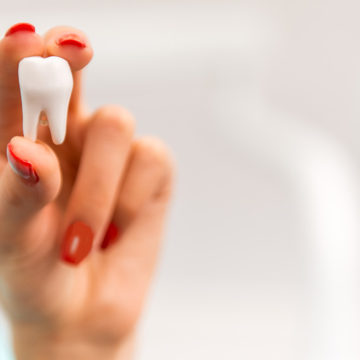
Frequent issues
- Tissue swelling over wisdom tooth, with or without pain (this is a very dangerous infection requiring antibiotics, called pericoronitis).
- Very large periodontal pockets around impacted molar and adjacent tooth related to the food accumulation and infection.
- Extra-oral swelling involved with the bacteria migrating into facial airspaces.
- Large cavities over wisdom tooth OR behind the adjacent tooth
Do I need to remove my wisdom teeth?
I came across an article on the SFDDA Newsletter recently that discussed certain urban myths in Dentistry. My favorite myth was on the topic of wisdom teeth and how they can “push,” “shift,” and create more crowding of teeth in the mouth. I’ve heard a lot from patients whose previous dentists would recommend to “wait and see if the wisdom teeth have room to come in” to consider removal.
The article challenges the common myth that wisdom teeth will push teeth around. In my personal opinion and experience, I agree that wisdom teeth do NOT move crowd teeth. We all learn that in Dental School! Most teeth will move over time as we age, especially after wearing braces during teenage years (not wearing retainers immediately after for a period will cause relapse). However, the small forces and movements caused during the root formation period of the tooth are not strong enough to move and cram teeth together. If it were that easy to move teeth, orthodontists would not struggle with wires and rubber bands. Wisdom teeth are not rockets trying to leave a tail of smoke after they decide to come out!
The million dollar question: should we wait until later in life to pull the wisdom teeth? I have heard from many patients who come see me that their previous dentist recommended not to touch their third molars. Not sure if this is the best decisions for our patients. Unfortunately, most people who wait (age mid-to-late 20s) end up sitting on my chair, swollen and begging for antibiotics. Well, I always tell my patients there is a very high chance that at least ONE wisdom tooth will cause trouble at some point in their lives.
These problems arise usually from food and bacterial growth as the molar comes out; also due to chewing on the swollen skin over the wisdom tooth.
I believe that it is counterproductive to a patient’s best interest if we wait for pain or discomfort to happen. It also increases risk and complications involved with the surgery if we wait. I agree with the the author of the article that the ideal time frame for removal (with some exceptions), is when the roots are partly but not completely formed; sometime in the mid-to-late teenage years.
I encourage all to ask your dentist or surgeon for a wisdom tooth consult, especially if you have had wisdom teeth pain, discomfort, swelling, have taken antibiotics several times.
Disclaimer: This article, as with any other written article by the editor of Dental World blog site, is not a “scientific article,” but an opinion blog. Although I may refer to scientific information or concepts, the information is nonetheless presented as “opinion.”



